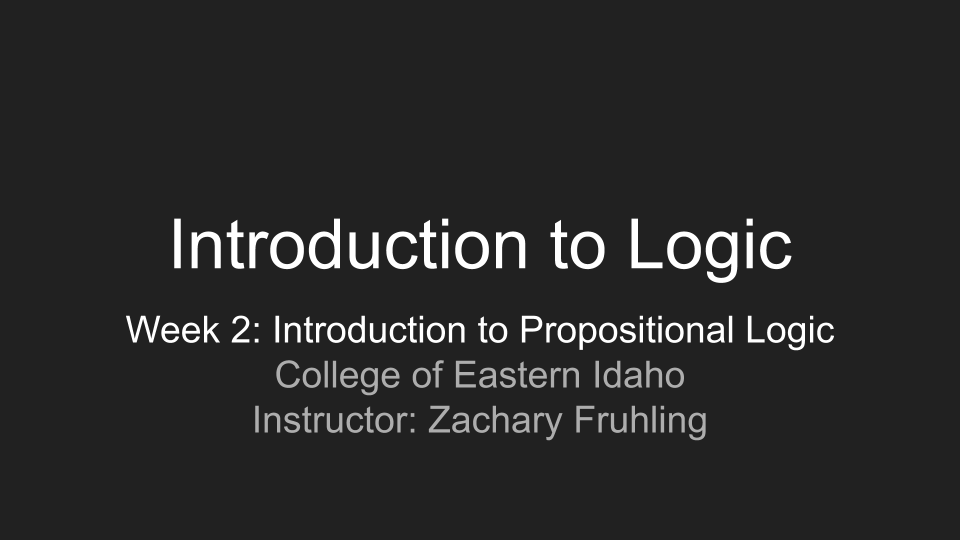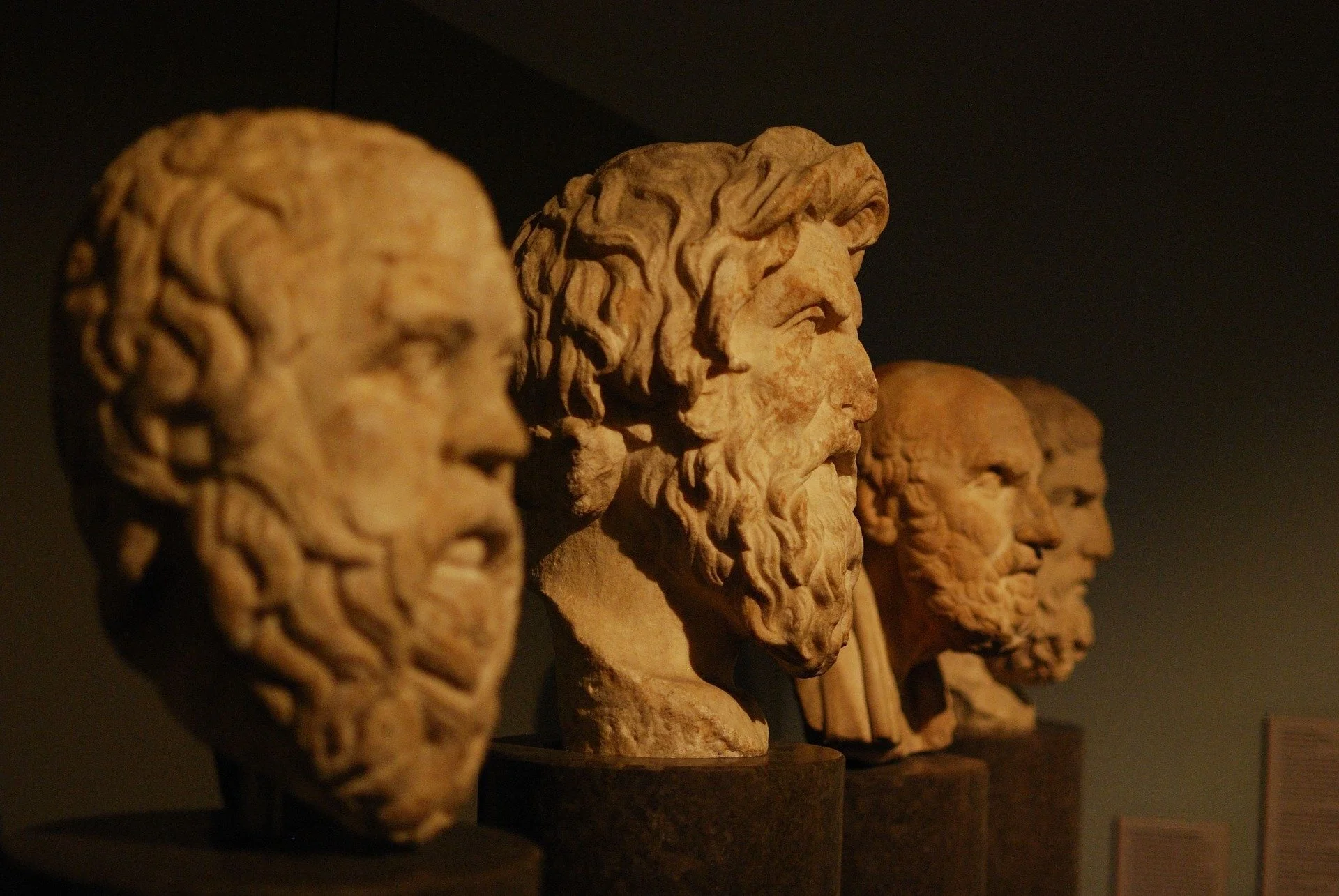Rescuing Thales: Why Must Philosophers Always Be So Literal?
When Thales of Miletus declared that the originating principle—the fundamental nature of reality—is water, did he mean it literally or metaphorically? What would it even mean for things that are obviously not water to have originated in water, or themselves to be made of water? Undoubtedly a literal interpretation of this claim, perhaps along with Thales having fallen into a well, didn’t help philosophy’s reputation among the non-philosophical and critics of philosophy ever since.
Heraclitus’s views on water have fared rather better, but only because we are more than happy to interpret his famous phrase that you “can’t step in the same river twice” metaphorically instead of literally. Heraclitus obviously isn’t saying that all of life is literally a river. But somehow we insist on claiming that Thales held that water was literally the fundamental nature of all reality.
As a metaphor, water is a good one: for the nature and needs of biological life forms, for the fluidity and change in the physical world cited by Heraclitus, even geographically as the medium in which land arises—especially for the seafaring ancient Greeks with the ubiquity of water and their dependency on it for their society to thrive. With such easy metaphorical interpretations, why then do we insist that Thales really believed that everything is literally water?
2,500 years after the dawn of Western philosophy in Thales—along with Heraclitus, Parmenides, and the other Presocratic philosophers—Friedrich Nietzsche criticized his fellow philosophers for being literalists, failing to see the metaphorical and endlessly creative aspects of knowledge, belief, and worldview production—that they had forgotten the art of living creatively in favor of over-reliance on not just universality and objectivity but literalness as well. They deny metaphors, epics, stories, and art and opt instead for safer but less creative theories, concepts, and ideas.
If philosophers today are excessively literal, there is a danger of retroactively interpreting the Presocratic philosophers more literally than they themselves intended. Aristotle, a literalist if ever there was one, seems likewise to interpret Thales’s claim that water is the originating principle literally. While undoubtedly an ancient source like Aristotle should be taken seriously, it’s also possible that Aristotle’s literal interpretation of Thales’s statements about water were a sign of the shift from the Dionysian worldview, with its reliance on epic narratives rich in metaphor, to the Apollonian worldview set in motion by Socrates and continued by his successors (chiefly Plato and Aristotle) and by philosophers right up until the present day, at least according to Nietzsche.
While it does injustice to Thales, overall, to claim that he wasn’t genuinely interested in answering genuinely philosophical questions about the nature of reality and its origin, it’s not clear at all how much wiggle room there is for interpreting the various (sometimes incomprehensible) views of the Presocratic philosophers metaphorically instead of literally, which is odd considering the ease with which we accept Heraclitus’s statements so easily as metaphors.
Most philosophers don’t think of themselves as being in the business of producing metaphors, although that’s all philosophers do according to Nietzsche. We create our own individual, cultural, and historical interpretations and project them onto reality and call them “truth,” failing to recognize how deeply metaphorical those interpretations are in the first place, no matter how seemingly objective they might be. How happy we are to shape and mold reality to fit our own conceptual schemas, all in the name of objectivity and truth.
What do we lose if we begin to interpret Thales’s views about water metaphorically instead of literally. No one today takes his views to be literally true anyway, if they ever did (unlikely!). We moderns know better than those underdeveloped ancient thinkers anyway. We know reality isn’t made of water. This means that we have nothing to lose and everything to gain by opening ourselves to a less literal interpretation of the claims of ancient philosophers, the Presocratics in particular. Interpreting the claims of Presocratic philosophers metaphorically actually gives them more credibility and makes them seem less like peddlers of crazy theories no one is likely ever to have believed. Instead, they are philosopher-poets dripping with metaphors about air and water, earth and fire; about nous (mind), logos (organizing principle), and apeiron (the boundless infinite—how poetic!). How much richer these critic views become when they are interpreted metaphorical, as literature or poetry, instead of literally as “theories.”
It’s ironic that philosophers developed such a penchant when one of our patron saints, Plato, authored the Allegory of the Cave (Republic, Book VII), which is just dripping with metaphor as much as reality drips with water for Thales. The Allegory of the Cave can be interpreted as a metaphor for any and all of the following: knowledge, education, politics, justice, government, reality, philosophy itself, and even Socrates’s own life. Why are we so happy to accept Plato’s metaphors in the Allegory of the Cave while interpreting other parts of Plato, the writings of other ancient philosophers, and the words of the Presocratics so literally?
At the risk of drawing a false analogy, interpreting ancient philosophers is like Biblical hermeneutics. It’s not at all clear which parts of the Bible should be taken literally or taken metaphorically, the book of Revelation for example, despite claims of various Christian denominations to the contrary. (See Revelation: Four Views, A Parallel Commentary by Steve Gregg.) And it’s not at all clear which parts of Presocratic philosophy should be taken literally as theories and which parts should be taken metaphorically, poetically, or rhetorically. Aristotle might have told us what Thales thought about water as the originating principle, but must we look at Thales so narrowly through Aristotelian lenses, or the lenses of what philosophy as a discipline would later become? Why not dwell on the poetic and rhetorical aspects of Thales’s statements and see what they have to teach us as metaphors for life and getting through it successfully—something more akin to the stoic and Buddhist insight—a happy confluence of Eastern and Western philosophy—that we must not get excessively attached to things, letting them roll off us like water (pun intended!) off a duck’s back?
Interpreting Thales’s statements about water metaphorically seemingly brings Thales closer to Heraclitus philosophically, but perhaps that’s a good thing. Philosophers have been debating the merits of materialism versus immaterialism, monism versus pluralism, etc. endlessly from the Presocratics onward, casting the Presocratics as the originators those very philosophical distinctions in the fist place. If we abandon, or at least subdue, our penchant for literalness in our interpretation of Presocratic philosophy, do the distinctions between these various ontological theories themselves collapse, recasting the competing views of the Presocratics as a clash of competing metaphors instead of a clash of beings—or a clash of theories of being?
To some extent, Heidegger pursued this project, reinterpreting the ontological notion of “Being” from Parmenides and bringing it fully into the human sphere phenomenologically. And what is a phenomenon if not a metaphor, and a deeply human metaphor at that? Heidegger himself seems to waffle between metaphysics, existentialism, and phenomenology, just as the Presocratics themselves seem to waffle between the theoretical, the metaphorical, and the poetic in their use of language. But given this waffling, both ancient and contemporary, we have reason to be skeptical of an overly literal interpretation of any statement of the Presocratics, no matter how much we are told by other ancient writers what the Presocrarics supposedly meant by “logos,” “apeiron,” or “nous.”
I’m not optimistic at all about our ability to cross the linguistic, historical, cultural, and philosophical barriers between the ancient use of those terms and our interpretation of them today. I am, however, optimistic that we can reinterpret them as rich metaphors full of fruitful interpretation rhetorically, poetically, and figuratively, in ways that have been overlooked by philosophers who have squeezed and pigeonholed the rich language of the Prescoratics into a too-small philosophical box unworthy of their original authors. Can’t we give Thales more credit than he’s been given historically—at least as much credit as we give Heraclitus and Plato when they speak in allegories and metaphors?
The challenge, then, in reading the Presocratics isn’t a theoretical or philosophical one; it’s a hermeneutical problem of interpretation, not merely of Ancient Greek words and terms and their literal or philosophical interpretations, but of metaphors and of colorful imagery from which we can draw more plausible conclusions than those forced on the Presocratics by later philosophers. At the risk of oversimplifying, reading the Presocratocs should be more like reading Homer than like reading Aristotle. Like all Hermeneutical interpretation, however, the danger is in bending the words and terms to mean whatever we want them to mean instead of what the original authors meant by them. Still, though, I can’t help but give Thales more credit than to think he literally held that everything is water, no matter what Aristotle or introductory philosophy texts have to say about him as the “first philosopher.” Surely Thales was a better writer and thinker than that! I prefer to think of Thales as the first philosopher-poet, perhaps closer to Nietzsche, the later Wittgenstein, or Heidegger than to Plato and Aristotle.
What other philosophers do we tend to read too literally? Perhaps all of them, as Arthur Melzer argues in Philosophy Between the Lines: The Lost History of Esoteric Writing. But to recognize this is nothing less than a radical reconnection of the entire history of Western philosophy, a hermeneutical and literary project instead of a purely philosophical one, reinforcing my increasingly strong views that a more literary approach to philosophy in general is needed.







